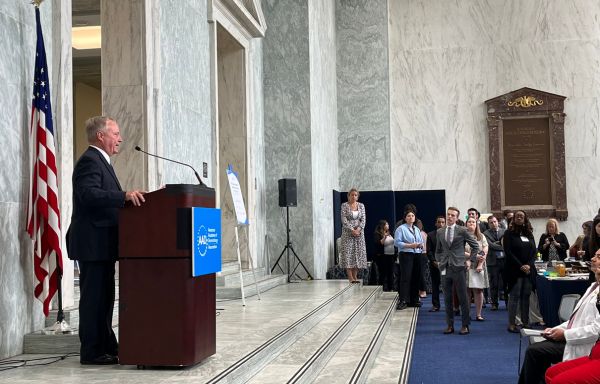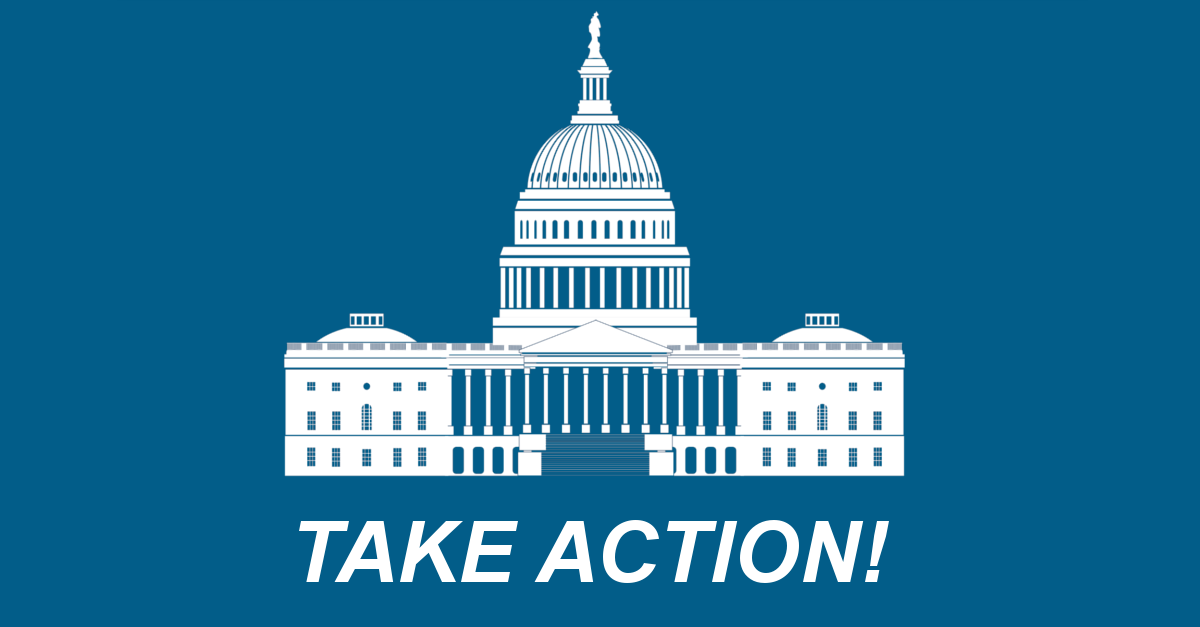| |
 |
| |
|
Melanoma Advocacy in Action!
|
|
From the desk of Douglas Brodman, Board Chair:
The work of advocating for the melanoma community does not take a break. Following the success of this year’s Advocacy Days program, the MRF and our advocates immediately launched into the work of procuring state proclamations, advocating for increased access to innovative melanoma treatments and pressing ahead on many of our Advocacy Days priorities. The contents of this quarterly newsletter are a testament to the fact that advocacy does not stop after Advocacy Days. True federal and state progress for the melanoma community requires constant care and attention, relationship building and dedication. I hope that you will join us in this meaningful work.
Sincerely,

Douglas Brodman
Chair, Board of Directors
|
|
|
 |
|
Melanoma Advocates Work to Have Three States Declare May Melanoma Awareness Month
|
|
This year, Governors Katie Hobbs (AZ), Jared Polis (CO) and Tim Walz (MN) each declared May as Melanoma Awareness Month thanks to the work of advocates Dee Conway, Stacey Sepp and Jenn Schultz. As Arizona advocate Dee Conway stated following the success of her state proclamation request, “As advocates, we are always looking for ways to bring more awareness to our cause to all communities within our state. Melanoma can affect all communities in Arizona. This is why Arizona’s state proclamation for Melanoma Awareness Month was so crucial for us to obtain. Our proclamation has been dedicated to Arizona native Rose Ring, who passed away in 2018 due to melanoma at the young age of 35. We appreciate the support of Governor Hobbs. Our hope is that Arizona lives will be saved with our efforts to bring awareness to melanoma and melanoma prevention.”
State proclamations offer a meaningful way for advocates to message the importance of melanoma prevention and increase awareness of this deadly disease. If interested in procuring a state proclamation for next year, please email advocacy@melanoma.org.
|
|
|
 |
|
MRF ATA Action for Fly-In on Telehealth Policy
|
|
The MRF continued its unwavering support of telehealth for our patient community by attending the American Telemedicine Association (ATA) Action’s Hill Day as a Patient Voices for Telehealth Coalition (PVTC) member on June 5. During six congressional meetings, including one with Speaker Mike Johnson’s (R-LA-2) office, we discussed one of our key priorities of making Medicare telehealth flexibilities that were granted during COVID-19 permanent. We will continue to advocate for bills like the CONNECT for Health Act so that healthcare services can continue to be delivered via telehealth as we know it to improve access to care, especially for our rare disease community.

|
 |
|
MRF Joins AADA’s Congressional
|
|
Each May, the MRF joins our partners at the American Academy of Dermatology Association (AADA) for their annual Skin Cancer Screening on the Hill. Members of Congress and their staff are invited to receive a free skin cancer screening provided by dermatologists and chat with patient advocacy organizations on issues related to skin cancer prevention and treatment. Congressman Dave Joyce (R-OH-14), Co-Chair of the Skin Cancer Caucus, provided opening remarks.This annual event allows MRF staff the opportunity to engage lawmakers and their staff on the importance of comprehensive policy for th
|
 |
|
SCOTUS Chevron Decision and its Impact on Health Policy
|
|
On June 28, the Supreme Court overturned a long-standing doctrine known as the Chevron Doctrine or Chevron Deference that compelled courts to defer to regulatory agencies’ reasonable interpretation of the law as directed by Congress. The ruling is concerning to many in health policy as it makes it harder for regulatory agencies like the Food and Drug Administration (FDA) to enforce policies and allows judges to second guess agency expertise or challenge longstanding regulations, such as those that affect drug safety and development. For example, Congressional statutes regarding drug approval are written using vague language like “substantial evidence” and “adequate and well-controlled investigations” which the FDA interprets as to mean studies that have a control group, minimize biases and standardize dosages. However, non-scientifically trained judges could weigh in and decide that the FDA has misinterpreted that language, resulting in drug approvals that have not incorporated those elements.
According to the American Society of Clinical Oncology (ASCO) Board Chair Eric P. Winer, MD, FASCO, “Deferring to judges and courts rather than expert administrative agencies such as FDA, CMS, and others, could harm people with cancer and the providers who care for them. Furthermore, Congress and the courts cannot be expected to act with the speed and scope necessary to address every complex regulatory issue involved in administering health care in the US.”
With this decision, there will likely be multiple lawsuits seeking to challenge regulatory agencies’ interpretation of laws. Furthermore, the administration of government health insurance programs such as Medicare and Medicaid could be tied up in lawsuits as well.
The MRF, like many other patient advocacy organizations, will continue to monitor this emerging healthcare landscape to effectively advocate for the melanoma community.
|
|
|
Skin Cancer Caucus Sunscreen Letter to FDA
|
|
The MRF applauds the co-leaders of the Skin Cancer Caucus, Reps. Deborah Ross (D-NC-2), Debbie Dingell (D-MI-6), Dave Joyce (R-OH-14) and John Joyce (R-PA-13) for their recent submission of a bipartisan letter urging the FDA to remove sunscreen filter barriers that will enable more safe and effective sunscreen options for US consumers.
This letter was part of the MRF’s Advocacy Day asks of congressional offices and thanks in no small part to the hard work of our advocates bringing this issue to the forefront for members of Congress. To read the letter, click here.
|
 |
|
California Sunscreen Resolution
|
|
The FDA’s inaction on sunscreen filter approvals has even caught the attention of state lawmakers. California Assemblymember Evan Low (D-26-Silicon Valley) recently introduced AJR 16 a resolution asking Congress to explore policy options that improve the FDA’s timeline for sunscreen filter approvals. The resolution currently has 69 co-sponsors and received a favorable vote out of committee.
|
 |
|
MRF Responds to IPPS
|
|
Each year, the Centers for Medicare and Medicaid (CMS) releases the Medicare and Medicaid Programs and the Children’s Health Insurance Program Hospital Inpatient Prospective Payment Systems for Acute Care Hospitals (IPPS). This year, the MRF responded to CMS’s proposed policy changes in support of two FDA-approved melanoma treatments, AMTAGVI and HEPZATO KIT. CMS is considering both drugs for New Technology Add-On Payments which, if approved, would allow melanoma patients with Medicare continued access to these innovative treatment options.
|
|
 |
|
In the News:
|
|
- Sen. Richard Blumnethal (D-CT) calls on FDA to approve sunscreen ingredients available in Europe
- Other Countries Have Better Sunscreens. Here's Why We Can't Get Them in the USNPR
- Rep. John Joyce questions (R-PA-13) FDA on sunscreen filter approval timeline
|
|
| |
|
|
|

|
|
1420 K Street NW, 7th Floor Washington, DC 20005 | Tel: (800) 673-1290
Melanoma Research Foundation © 2026 All rights reserved.
|
|